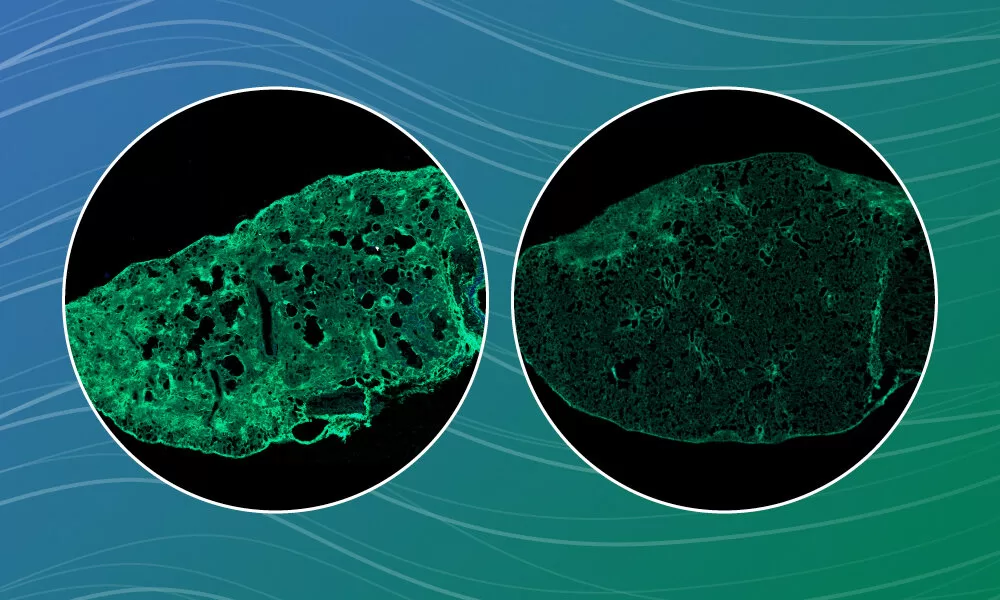A new study from scientists at EMBL Heidelberg has unveiled promising findings about dextromethorphan, a common ingredient in over-the-counter cough syrups. This ingredient, long used to treat coughing, may hold therapeutic potential for patients suffering from lung fibrosis, a condition that results in scarring and hardening of the lungs. The breakthrough study, recently published in Science Translational Medicine, explores how dextromethorphan could impede the formation of collagen, the key substance responsible for fibrosis, and potentially slow the progression of the disease.
Lung fibrosis, which occurs when excessive collagen accumulates in the lungs, leads to stiffness in lung tissue, causing breathing difficulties and reducing oxygen levels in the bloodstream. This condition can result from a variety of factors, including exposure to environmental toxins like asbestos or coal dust, chemotherapy side effects, tuberculosis, and autoimmune diseases such as lupus and rheumatoid arthritis. It predominantly affects older adults, with an estimated 761,000 individuals suffering from the disease across Europe alone, according to the World Health Organization (WHO). The condition has been linked to 25,000 deaths and significant loss of healthy years.
Muzamil Majid Khan, a research associate at EMBL Heidelberg and the lead author of the study, became interested in finding new treatments after realizing that lung fibrosis currently has no cure. Rather than starting from scratch, Khan and his team decided to investigate existing FDA-approved drugs. Their screening process led them to dextromethorphan, which was already available over-the-counter for cough relief.
In collaboration with the Translational Lung Research Center (TLRC) Heidelberg and the German Center for Lung Research (DZL), the researchers tested dextromethorphan on human lung cells using advanced technologies such as high-throughput microscopy and proteomics. They developed a unique “scar-in-a-jar” assay, which mimics the collagen-scarring process and served as a testing platform for potential anti-fibrotic drugs.
The results were promising. Dextromethorphan was found to inhibit collagen trafficking, a key process in the formation of fibrotic scarring, in both mouse models and 3D human lung tissue cultured in the lab. Rainer Pepperkok, EMBL group leader and senior author of the study, emphasized that while these findings are still in the early stages, they represent a crucial first step in understanding the potential of dextromethorphan as a therapeutic for lung fibrosis.
The team is now planning to move forward with phase II clinical trials to test whether these promising results translate to human patients. The next step will involve further research into the mechanisms behind dextromethorphan’s effects, which could lead to the development of more targeted and effective therapies.
Although the research is still in its fundamental stages, the potential of dextromethorphan as a treatment for lung fibrosis offers hope for patients facing this debilitating condition. The discovery highlights the possibility of repurposing existing drugs to address complex diseases, bringing new hope for those affected by lung fibrosis.
For more details, refer to the study: Dextromethorphan inhibits collagen and collagen-like cargo secretion to ameliorate lung fibrosis, Science Translational Medicine, 2024. DOI: 10.1126/scitranslmed.adj3087.












